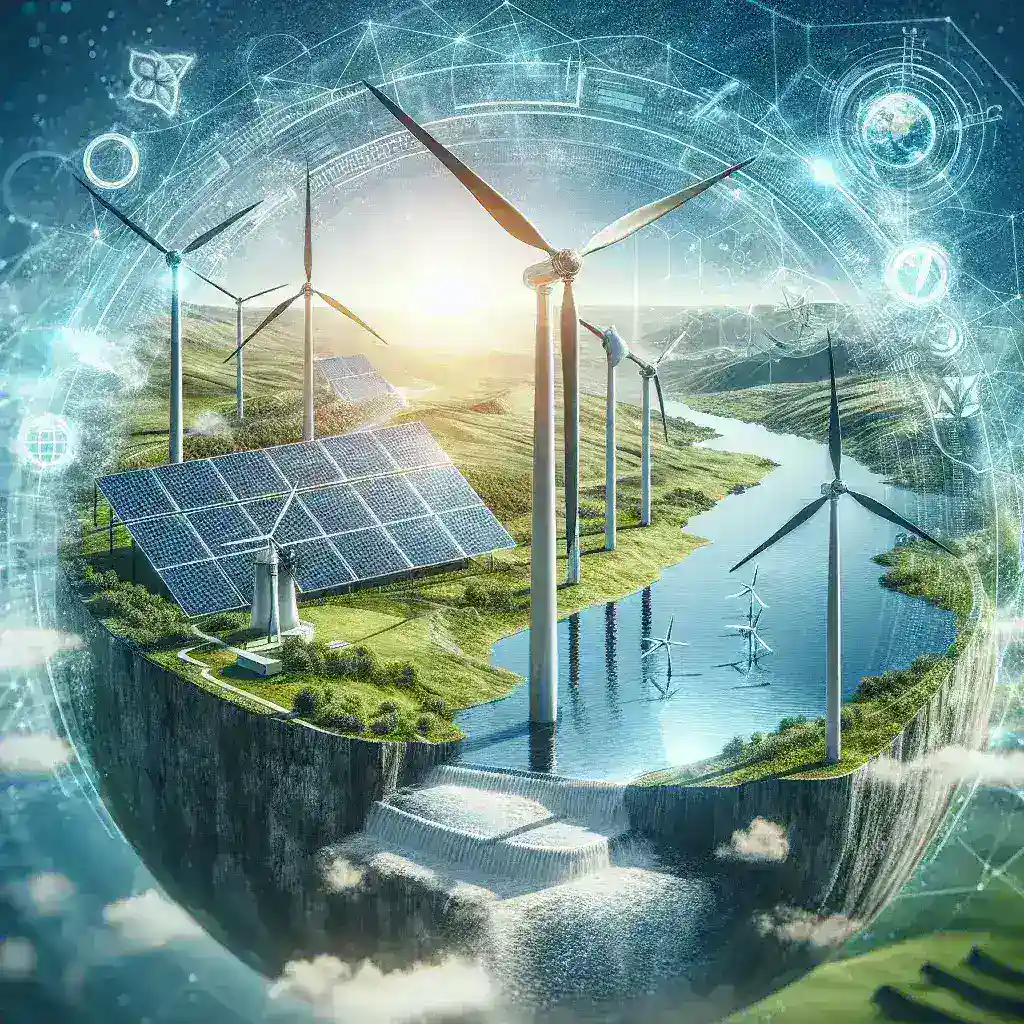
As the world becomes increasingly aware of the environmental impacts of fossil fuels, the push towards renewable energy sources has never been stronger. These sustainable alternatives hold the promise of meeting our energy needs while reducing our carbon footprint. But what does the future hold for renewable energy? This article explores the advancements and potential of various renewable energy sources.
Solar Energy: Harnessing the Power of the Sun
Among renewable energy sources, solar energy has shown tremendous growth and potential. Solar panels, which convert sunlight directly into electricity, are becoming more efficient and affordable. Innovations such as thin-film solar cells and solar farms have made it possible to generate vast amounts of energy.
Advancements in Solar Technology
- Perovskite Solar Cells: These materials promise higher efficiency at lower costs compared to traditional silicon solar cells. Ongoing research is working towards making them commercially viable.
- Bifacial Panels: These panels can capture sunlight from both sides, significantly improving energy output.
- Solar Roofing: Roof tiles integrated with solar technology are becoming a popular choice for homeowners looking to harness solar energy without compromising aesthetics.
The Future of Solar Energy
The future of solar energy looks promising with continuous advancements. The integration of energy storage solutions, such as batteries, will address the issue of intermittency, ensuring a steady supply of electricity even when the sun isn’t shining.
Wind Energy: Capturing the Power of Wind
Wind energy is another significant player in the renewable energy landscape. Wind turbines convert the kinetic energy from wind into electrical power. Technological advancements are making wind turbines more efficient and less intrusive.
Innovations in Wind Energy
- Offshore Wind Farms: Placing wind turbines in the ocean where wind speeds are higher and more consistent can significantly boost energy generation.
- Vertical Axis Wind Turbines: These turbines can capture wind from any direction, making them suitable for urban areas.
- Smart Grids: Integrating wind energy into smart grid technology ensures better distribution and reduced energy loss.
The Future of Wind Energy
The expansion of offshore wind farms and the development of more efficient turbine designs will continue to enhance the viability of wind energy. Additionally, advancements in grid integration will help in balancing the supply and demand more effectively.
Hydropower: Energy from Water
Hydropower has been a reliable source of renewable energy for decades, utilizing the flow of water to generate electricity. Recent innovations are making hydropower even more sustainable and efficient.
Advancements in Hydropower Technology
- Small-Scale Hydropower: These installations are less intrusive on the environment and can be deployed in remote areas.
- Pumped Storage Hydropower: This technology serves as a giant battery, storing energy for later use during peak demand times.
- Fish-Friendly Turbines: These turbines minimize the impact on aquatic life, making hydropower projects more environmentally friendly.
The Future of Hydropower
As the emphasis on environmental conservation grows, the development of less invasive and more sustainable hydropower technologies will become a priority. Hybrid systems combining hydropower with other renewable sources are also gaining traction.
Emerging Renewable Energy Sources
Beyond the well-known solar, wind, and hydro energy sources, several emerging technologies show great promise.
Geothermal Energy
This technology harnesses heat from beneath the Earth’s surface to generate electricity. Geothermal plants have a small land footprint and can provide a constant power supply.
Biomass Energy
Biomass involves converting organic materials such as agricultural waste, wood, and even algae into energy. It is a versatile source with applications in electricity generation, heating, and transportation fuels.
Ocean Energy
Oceans offer vast energy potential through tidal and wave energy. These technologies are still in the experimental stage but have the potential to provide substantial amounts of renewable energy.
Integrating Renewable Energy Systems
The future of renewable energy isn’t just about individual technologies but also about how these systems can work together. The integration of various renewable energy sources with advanced energy storage solutions and smart grid technology promises a resilient and efficient energy system.
Energy storage systems, such as lithium-ion batteries, flow batteries, and even hydrogen fuel cells, play a critical role in balancing supply and demand. Smart grid technology, which uses sensors, communication networks, and artificial intelligence, ensures optimal distribution and reduces energy waste.
Conclusion: A Sustainable Future
The future of renewable energy is bright, driven by technological advancements and a global commitment to sustainability. Solar, wind, and hydropower technologies are continuously evolving, while emerging sources like geothermal and biomass energy are gaining momentum. Integrating these diverse energy sources into a unified system will ensure a reliable and efficient supply of clean energy for generations to come.
Leave a Reply